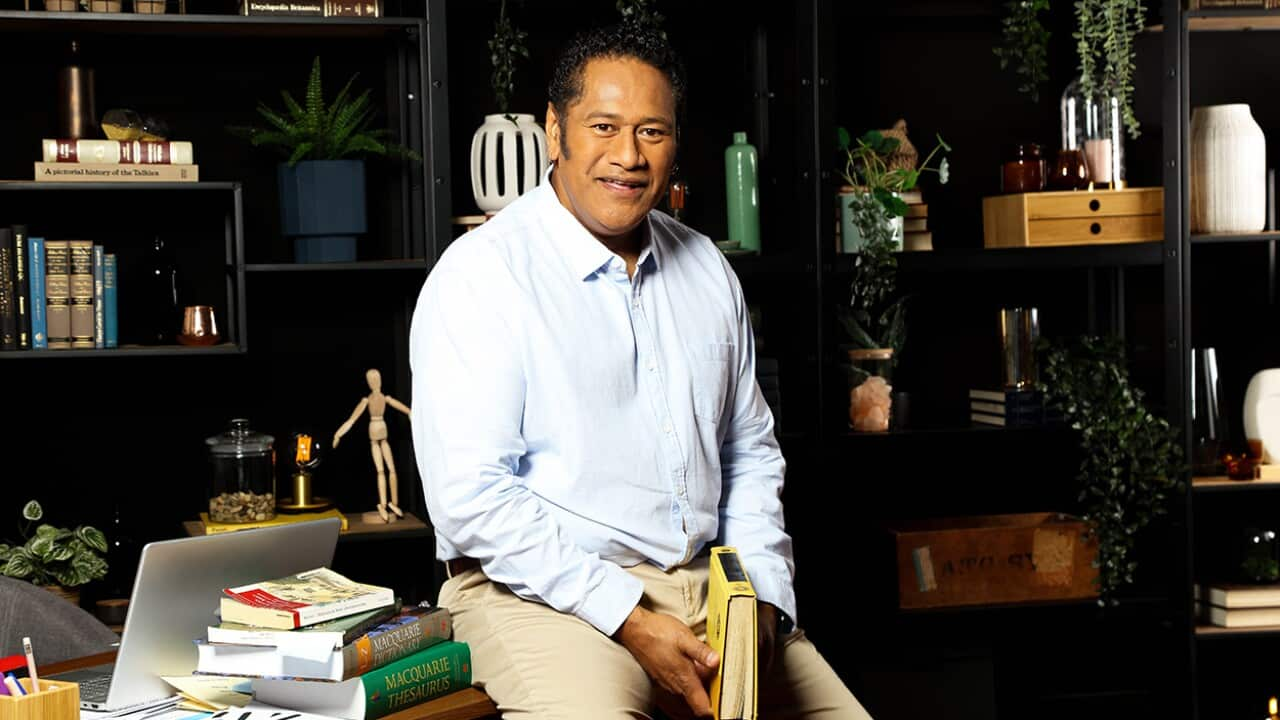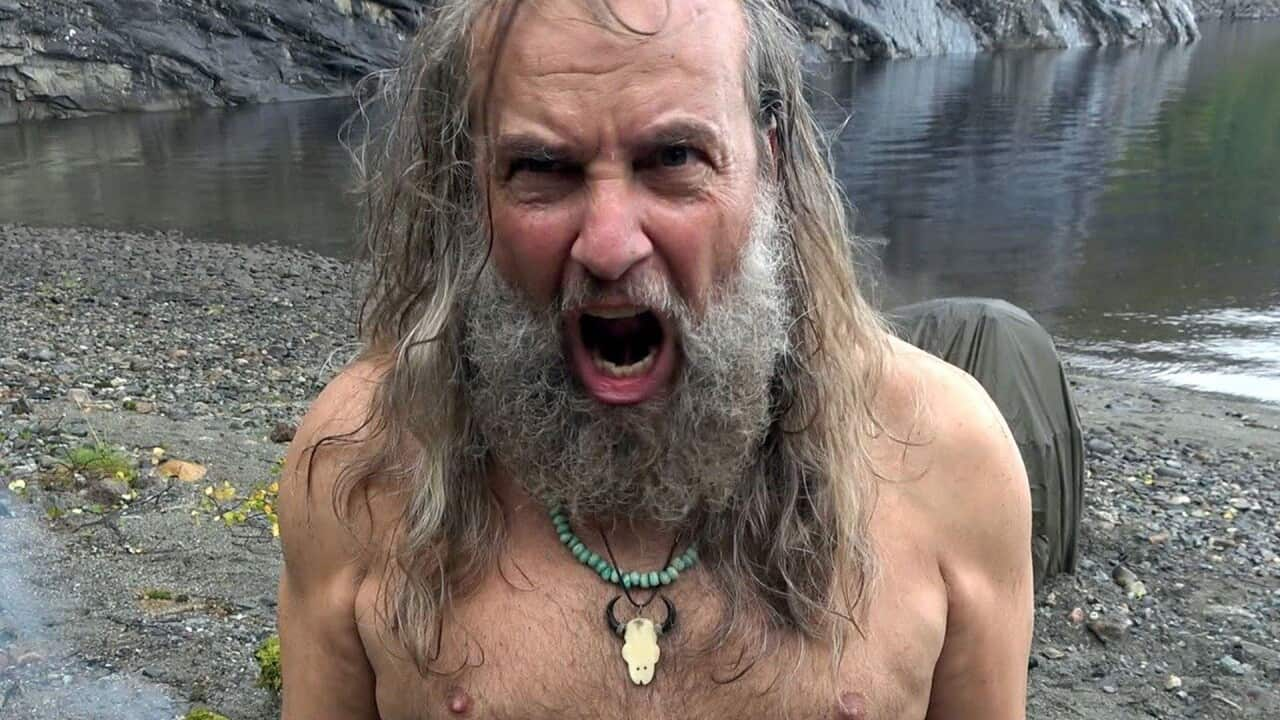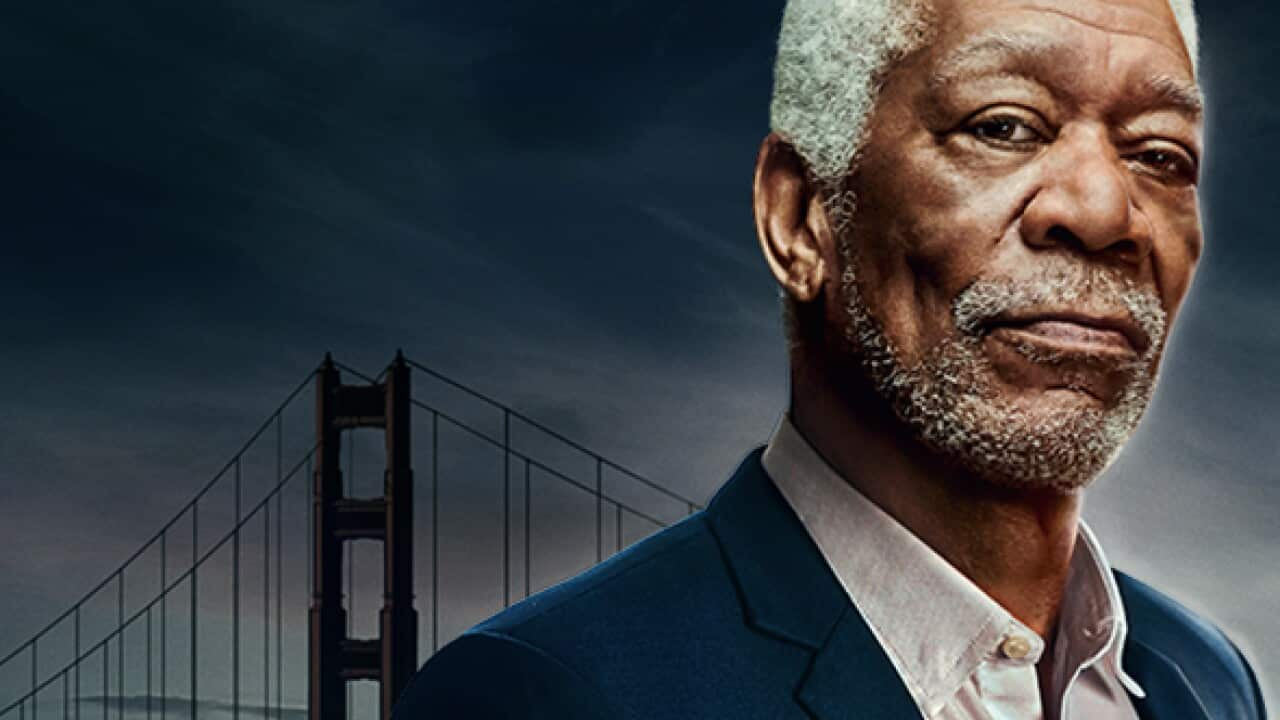Contemporary American poet Jimmy Santiago Baca once said, “literacy is freedom and everyone has something significant to say.” It’s a powerful statement, but for the more than seven million Australian adults who struggle to read and write, it’s a freedom they have likely never experienced.
Now SBS’s new three-part documentary series, Lost For Words, is giving a group of brave people a second chance, taking them back to the classroom to improve their literacy skills through an intensive program focused on helping them achieve their personal goals. Though each participant has their own story and reason for wanting to give learning another go, for host Jay Laga’aia, there was a collective courage in signing up for the program that united the group from the very beginning.
“Your secret is going to be out there. That little secret that you held close to your chest that you were so embarrassed to tell your closest friends, suddenly everyone will know,” he says. “What we set up here in this classroom environment was a situation where nobody can read or write so there was no need to be apprehensive.”
Over nine weeks, each participant worked towards a goal specific to them, ranging from sending a professional email to writing the first page of a fantasy novel. They are freedoms and opportunities often taken for granted, but for this group, learning difficulties, life circumstances and linguistic intricacies had prevented them from being an achievable reality. In many cases, a personal sense of shame had also stood in the way, a consequence of hiding this secret that had eroded their self-worth for years. “Why is it that it’s okay to say ‘I’m not good at maths’ but the second I say ‘I can’t read or write’ I’m stigmatised?” Laga’aia says. “The difference with this classroom was it allowed the students to make mistakes out loud.”
“Why is it that it’s okay to say ‘I’m not good at maths’ but the second I say ‘I can’t read or write’ I’m stigmatised?” Laga’aia says. “The difference with this classroom was it allowed the students to make mistakes out loud.”

The participants of ‘Lost For Words’. Source: SBS/Nigel Wright
It is this freedom to fail that sees participants tackle a range of tasks that initially seem unachievable but, thanks to the skills practised with the support of teachers and adult education experts Jo Medlin and Adam Nobilia, are now possible.
It’s very rare that one’s learning experience is entirely smooth sailing, however. For 28-year-old arborist Mike, his battle to read and write, and subsequent admission of feeling useless, comes to the fore when he is confronted with the complexity of navigating a lengthy ingredients list. His obvious frustration is hard to watch, and the toll his educational experiences have had is undeniable, but the support from Laga’aia and the empathy from other participants is a reassuring reminder that he is not alone; illiteracy is a problem faced by a significant proportion of our population on a daily basis. “The great thing about this show is that it’s real. Not everyone succeeds, and there are always going to be people who go back to the excuses that they’ve used in the past,” Laga’aia admits.
“The great thing about this show is that it’s real. Not everyone succeeds, and there are always going to be people who go back to the excuses that they’ve used in the past,” Laga’aia admits.

Mike is keen to make his daily life easier. Source: SBS/Nigel Wright
“You present them with an issue or a problem or they get themselves into a challenge, and then you give them solutions to get themselves out. You don’t throw them a rope and pull them out.”
For 29-year-old IT support worker Shelle, the absence of solutions and strategies to manage her dyslexia throughout her schooling left her with a feeling of inadequacy that coloured much of her childhood. Her passion for stories got her through this difficult period, and is now the motivation that spurs her on, in hopes of becoming a fantasy writer herself. For mother of two Makere, the dream was to read books to her children. Lamine is determined to get his driver’s licence while Celia wants to be able to write important emails without needing to have them checked by her mother.
For mother of two Makere, the dream was to read books to her children. Lamine is determined to get his driver’s licence while Celia wants to be able to write important emails without needing to have them checked by her mother.

Shelle wants to write fantasy fiction. Source: SBS/Nigel Wright
As the series continues, doors like this open for each of the participants and every small win is a step beyond the boundaries they have had placed upon them or, in many cases, set themselves. Though the experience is far from easy, demanding commitment and patience from participants and educators alike, it’s the ‘aha’ moments that make all the effort worth it.
“They’re marathon runners in a world full of sprinters, because everyone else knows how to read and understand instantly, whereas they have these work-arounds, which take forever, but they eventually get there,” Laga’aia explains.
“At the end of the day, the main thing that holds people back from learning is confidence. If you surround yourself with a nurturing environment, you will learn.” There’s a recognition throughout the series that these nine weeks are only the beginning, and ongoing progress will require the participants to continue to build on the knowledge they have acquired here. That being said, it’s obvious from the moment they first walk into the classroom that there is something incredibly freeing about asking for help again after all this time and, better still, finally getting it. It’s hoped that these stories will inspire others who are experiencing a similar struggle with literacy and encourage people from all walks of life to recognise that it’s never too late to realise their potential and learn at any age.
There’s a recognition throughout the series that these nine weeks are only the beginning, and ongoing progress will require the participants to continue to build on the knowledge they have acquired here. That being said, it’s obvious from the moment they first walk into the classroom that there is something incredibly freeing about asking for help again after all this time and, better still, finally getting it. It’s hoped that these stories will inspire others who are experiencing a similar struggle with literacy and encourage people from all walks of life to recognise that it’s never too late to realise their potential and learn at any age.

Lamine in 'Lost for Words' Source: SBS
“This is not an incurable disease; it’s fixable,” Laga’aia reiterates. “All you need to do is apply yourself. You can change it.”







